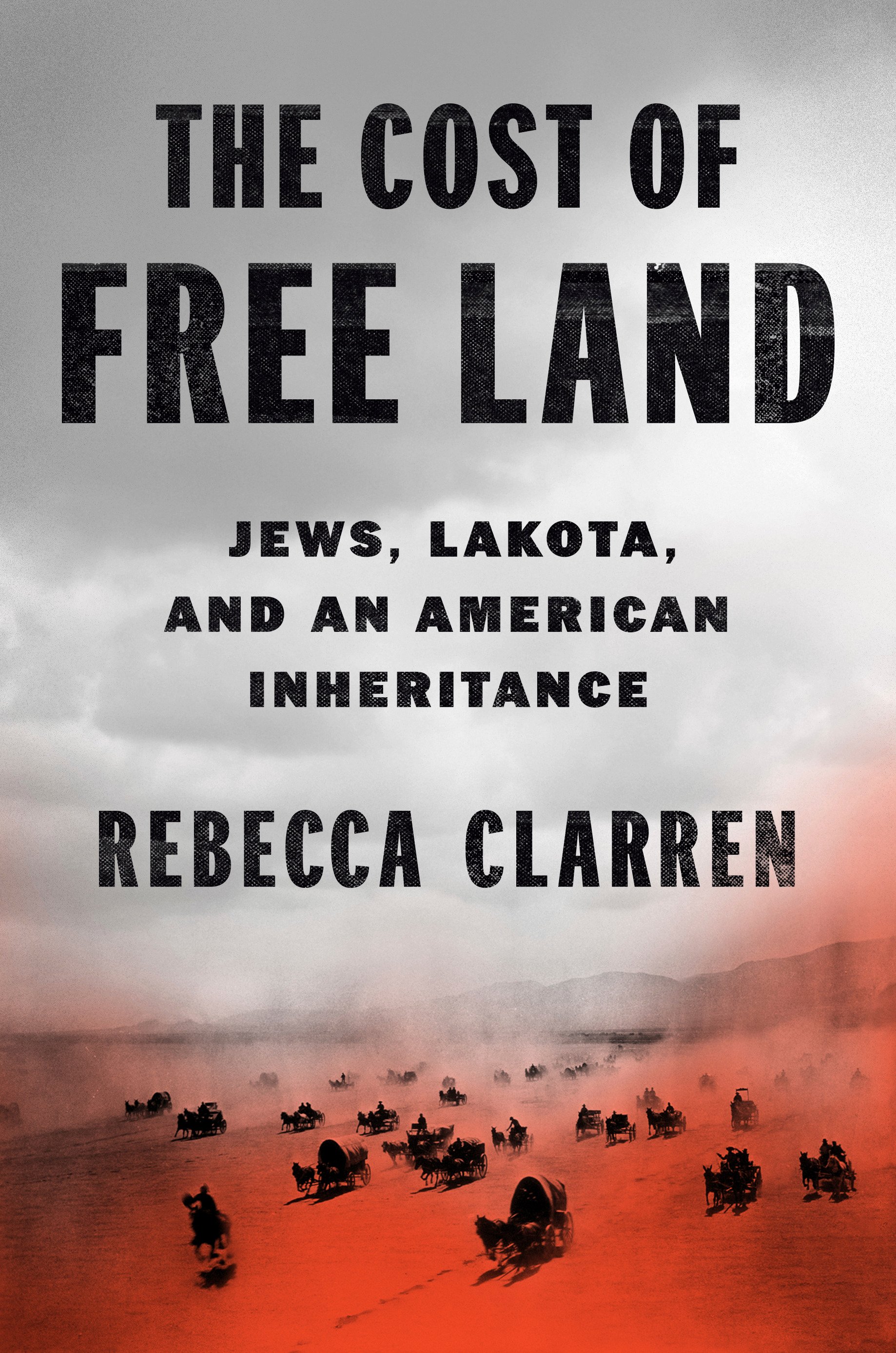PRAISE FOR THE OF COST FREE LAND:
“A monumental piece of work… Clarren felt the urgent need to understand just how much her family had benefitted from the genocide and erasure of its land’s first people. The result is what will become a classic of personal journalism and memoir, a book to join Jesmyn Ward’s “Men We Reaped,” Terry Tempest Williams’ “Refuge” and Elissa Washuta’s “White Magic” as examples of work that sees the clear link between the personal and American culture and history.”—The Boston Globe
“Memorable… Fascinating… A deft mix of personal and social history that recounts the transfer of Native American lands to non-Indigenous settlers, including Jews fleeing antisemitic violence. . . [The Cost of Free Land], troubling and inspiring, seeks a humane path toward restitution.”—Kirkus (*starred review*)
“Drawing on Jewish traditions of reconciliation, Clarren seeks to find a path for meaningful reconciliation and reparation for the harm done to Native people. Her present-day family provides a remarkable model for compensation, repentance and transformation that can begin to heal the wounds from our past.”—BookPage (*starred review*)
“This heartfelt and well-researched work introduces us to little-known historical realities. Perhaps even more important, Rebecca Clarren explains and models how each of us can approach dealing with uncomfortable truths about the past, and begin to move forward towards healing wounds and wrongs left unaddressed for too long.”—Brett Lee Shelton, Native American Rights Fund
“In this gripping book, Rebecca Clarren turns her unflinching gaze on her Jewish ancestors who escaped persecution only to unwittingly take part in a holocaust that, in the words of one Lakota man, ‘lasted four hundred years.’ In taking to heart the counsel of both Indigenous elders and Jewish leaders to seek truth and make redress, she creates a new model for engaged history.”—Margaret Jacobs, author of After One Hundred Winters: In Search of Reconciliation on America’s Stolen Lands
“Meticulously researched and intricately woven, The Cost of Free Land proves our personal stories inextricable from our collective history. In her deft distinctions between mythmaking and truth telling, ownership and belonging, absolution and real repair, Rebecca Clarren has written a profound, important book.”—Sierra Crane Murdoch, author of Yellow Bird: Oil, Murder, and a Woman’s Search for Justice in Indian Country
“With compassion and guts, Rebecca Clarren illuminates a riveting and important history, while contemplating what should be done about past —and persisting — injustice.”—David Wolman, author of Aloha Rodeo: Three Hawaiian Cowboys, the World’s Greatest Rodeo, and a Hidden History of the American West
“A brilliantly conceived family history, one that places questions of responsibility and atonement at the center of the conversation about America’s political future.” - The Whiting Foundation
“The flight of Rebecca Clarren’s ancestors from Russia to South Dakota entangled their rising prospects as immigrants with the reduced possibilities of the Lakota. This surprising book reveals the burdens the past creates and the rewards and obligations it offers.”—Richard White, Pulitzer Prize-winning author of The Middle Ground: Indians, Empires, and Republics in the Great Lakes Region, 1650-1815
ABOUT THE COST OF FREE LAND:
An award-winning author investigates the entangled history of her Jewish ancestors’ land in South Dakota and the Lakota, who were forced off that land by the United States government
Growing up, Rebecca Clarren only knew the major plot points of her tenacious immigrant family’s origins. Her great-great-grandparents, the Sinykins, and their six children fled antisemitism in Russia and arrived in the United States at the turn of the 20th century, ultimately settling on a 160-acre homestead in South Dakota. Over the next few decades, despite tough years on a merciless prairie and multiple setbacks, the Sinykins became an American immigrant success story.
What none of Clarren’s ancestors ever mentioned was that their land, the foundation for much of their wealth, had been cruelly taken from the Lakota by the United States government. By the time the Sinykins moved to South Dakota, America had broken hundreds of treaties with hundreds of Indigenous nations across the continent, and the land that had once been reserved for the seven bands of the Lakota had been diminished, splintered, and handed for free, or practically free, to white settlers. In The Cost of Free Land, Clarren melds investigative reporting with personal family history to reveal the intertwined stories of her family and the Lakota, and the devastating cycle of loss of Indigenous land, culture, and resources that continues today.
With deep empathy and clarity of purpose, Clarren grapples with the personal and national consequences of this legacy of violence and dispossession. What does it mean to survive oppression only to perpetuate and benefit from the oppression of others? By shining a light on the people and families tangled up in this country’s difficult history, The Cost of Free Land invites readers to consider their own culpability and what, now, can be done.
